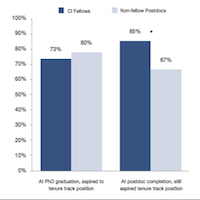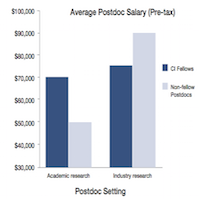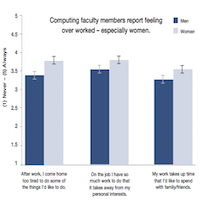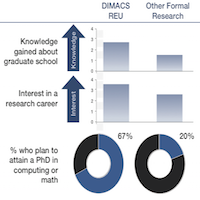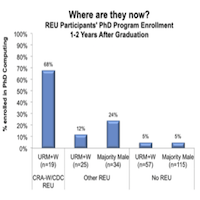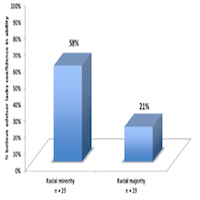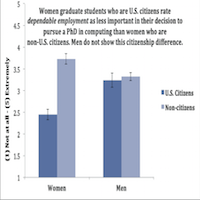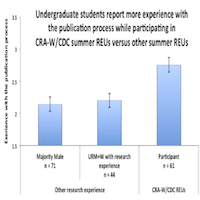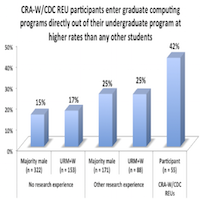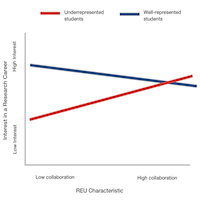
Collaborative research environments in computing
Forty four undergraduate students from underrepresented populations in computing (i.e., women + men of minority racial/ethnic groups) and 26 undergraduate students from well-represented populations in computing (i.e., Asian + White men) who had recently completed a summer NSF research experience for undergraduate students (REU) reported (a) how collaborative their REU had been and (b) interest in pursuing a research career later in life. Well-represented students reported strong interest in a research career, regardless of the degree to which their REU was collaborative. However, underrepresented students’ interest was related to the collaborative nature of their REU, such that experience with a more collaborative REUs was associated with more interest in pursuing a research career later on. This finding suggests that collaborative research environments in computing may be more important for underrepresented students’ persistence in computing research careers than is the case for well-represented students.


